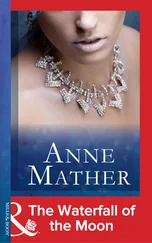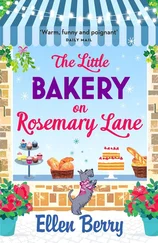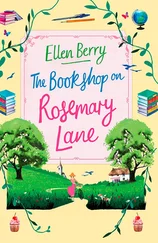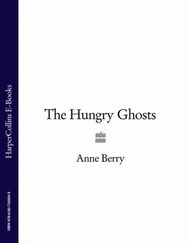Her plan begins with a prayer. Catherine has never been very good at praying, she admits to herself now. When she goes to church with her parents, she pretends. She moves her lips in a kind of mumble and counts things in her head. How many people wearing hats? How many lighted candles? How many empty pews? In any case, she knows her mother isn’t praying properly either, she is far too preoccupied studying what the other women are wearing, making sure that she has outdone them all in, say, her new custard-yellow Orlon sweater dress, cinched in at the waist with a wide black belt, plus her matching kitten heels with the fashionable almond toes.
Deep down Catherine isn’t really sure about God, about whether he truly exists. And if, just say he does, he is really bothered with her birthday. She has her doubts, grave doubts. She thinks about all the awful things that happen in the world, like murders and aeroplane crashes, and famines with thousands of babies swelling up like plums, and terrible storms that wash away whole towns. He doesn’t do anything about them, does he? So why should he intervene on Catherine’s behalf to ensure that her day goes smoothly? If he can’t be bothered to sort out the most ghastly of life-and-death catastrophes, why on earth should he trouble himself with one girl, a shop-bought cake and a few games?
Still, she presumes that it is worth a try anyway, and it certainly won’t hurt. So she takes a deep breath, and trying to be absolutely truthful, puts real words to her prayer. She feels a bit shy (although it is only her and God, and even he might not really be present at all), so she slides down under the sheet and blankets. She clasps her hands together in the fuzzy greyness, then begins to whisper:
‘Dear God, please let today be exactly as I have imagined it. Don’t let the bad thoughts ruin it. Let Mother come into my room in a minute with a real smile on her face, not the one she usually glues there, the one that looks fixed, like a painting. And don’t let her lose her temper with me, or Father either, and shout out in that screech of hers that makes me jump inside. And don’t let him shuffle about looking all lost, making me feel embarrassed in front of my friends. Please make sure that Stephen doesn’t forget about the motorbike ride. And also, could you see to it that I get all the presents I want, and that they let me win one turn of pass the parcel, and that Penny Rainbird is so jealous of me that her face goes all red and blotchy. Amen.’
Not bad for her first real prayer, is her assessment, not bad at all. And God really seems to listen because the day gets off to a very promising start. When Catherine comes down for breakfast, her hair brushed and her mouth tingling with toothpaste, there are two parcels waiting for her on the dining table, both with cards sitting on top of them. And there are other cards too that have arrived in the post, one all the way from America that she bets is from her cousins.
‘Here she is, the birthday girl,’ her father, Keith Hoyle, says, getting up from his seat to give her a kiss on the cheek.
‘Hello, darling. Many happy returns of the day,’ her mother chimes in perfunctorily, stooping to kiss a spot in the air somewhere past her head.
‘Now, where to start, that’s the dilemma,’ he continues kindly, a twinkle in his faded blue eyes.
As he retakes his seat and Catherine sits down opposite him, her mother floats by. She is distracted by her reflection in the oval mirror. It is suspended from the picture rail above the sideboard by a brass chain. She pats her curls, then peers closer at her image, worrying that she may have spotted a couple of grey hairs tucked in among the red. Catherine, oblivious to her mother’s preening, considers grabbing the packages and ripping them open, careless of ruining the paper. But that will be wasteful and probably earn me a scolding, she cautions herself.
It is good manners to open the cards first, and besides she can’t wait to read what Uncle Christopher and Aunt Amy have to say. She has heard whispers that the American Hoyles may be coming to spend Christmas in England. The idea of seeing Rosalyn again is so exciting that she is petrified to dwell on it, in case, like a wriggling fish, it slips away. She has a presentiment that if anyone realizes how much it means to her, even God, they will maliciously sabotage the trip.
She hasn’t seen Rosalyn for, well . . . almost a year. She may have picked up an American accent by now. She wonders how they talk in Boston. And she wonders if they will recognize each other, or if they both will have altered too radically. She suspects that she is much the same. Grape-green eyes, an oval face, fine Titian hair cut short, worn with a side parting and secured with several grips. Will Rosalyn like her as much as she used to, or will a year living in America have changed her mind about her cousin, Catherine? She may find her dull now, or worse, annoying. Oh, but to spend Christmas with Rosalyn, to go to sleep with her on Christmas Eve and wake up with her on Christmas morning. She dares to believe that it is possible in a miraculous kind of way. There has definitely been talk about her family joining them, the English Hoyles joining the American Hoyles in the house they are considering renting in Sussex. To open their stockings together, and pull crackers and read the silly riddles to each other, and to sneak out for long walks, and share the secrets they have collected in the months they have been apart. Actually, Catherine can’t remember any on the spot, but given time she’s bound to come up with some. And if she does have to invent a few, Rosalyn will understand, she is certain of it.
She loves to listen to Rosalyn talk. She has a voice that is clear as glass, a voice which tings the way her mother’s best crystal tumblers do when she flicks them with her long nails. She doesn’t apologize for herself when she speaks. She isn’t at all hesitant, or ready to concede the floor if no one wants to listen. She is accustomed to people paying attention. She has a confident air that clings to her, the way clouds do to mountain peaks. And she tells wonderful stories with beautiful descriptive words, draws them with the words, and then holds up the sketches with a smile that makes Catherine melt like butter on a hot crumpet. But this is too bad, she is already letting herself think about it as if it is as good as arranged. The consequence of this sort of thing will, of course, be that it is cancelled. So she pushes it out of her head with the brute force of her own will. As a penance she will open the other cards first, make herself wait to hear the news from America. Her father clears his throat and she looks up to see his expectant face, at least, is on her.
Grandma Stubbings has sent a crisp ten-shilling note, and a card that is really too young for her, with a picture of Miss Muffet on it and a big hairy spider. And there are a couple of other cards as well, one from the godmother who hasn’t forgotten her. She has opened a savings account for Catherine and keeps telling her on birthdays and at Christmas time, that she has put in another pound. But Catherine thinks, although generous, that this is very wearisome, because she can’t take any money out until she is eighteen, which is a lifetime away. And there is a book token from her godfather who lives in Wales, and a prayer card from the lady who runs the Sunday school. Then at last she opens the one with the American stamp on it. Her Uncle Christopher and her Aunt Amy, and her cousins Rosalyn and Simon, have sent a postal order for one pound and ten shillings. Aunt Amy has written a note on the side of the card that doesn’t have a printed message on it. Catherine reads it and her heart thumps loudly in her chest.
‘Thirty shillings. That’s generous of my brother. Isn’t that kind of Christopher and Amy, Dinah?’
Читать дальше











